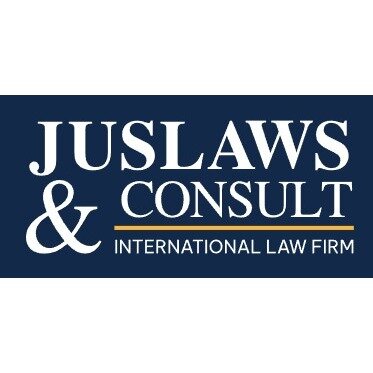Best Professional Malpractice Lawyers in Thailand
Share your needs with us, get contacted by law firms.
Free. Takes 2 min.
Or refine your search by selecting a city:
List of the best lawyers in Thailand
Legal guides written by Smart Legal Solutions:
- Main Legal Measures to Protect Foreign Investment in Thailand
- The importance of the geographical indications for the Thai economy
Legal guides written by Mahanakorn Partners Group Co., Ltd:
- Thailand Strengthens Anti-Money Laundering Laws with New Amendments
- Recent Updates to Thailand’s Long-Term Resident (LTR) Visa and SMART Visa Programs
- Managing Risks in Public-Private Partnership Projects
About Professional Malpractice Law in Thailand
Professional malpractice in Thailand generally pertains to negligence or misconduct by professionals, which results in harm or damage to their clients or patients. This area of law covers various professions including medical practitioners, lawyers, accountants, architects, and other licensed professionals. When a professional fails to perform their duties to the accepted standard of practice or breaches a duty owed to a client, they can be held legally accountable. As Thailand's professional services sector grows, awareness and legal frameworks around professional malpractice are also evolving to protect consumer rights and uphold standards of practice.
Why You May Need a Lawyer
If a person believes they have suffered harm due to the negligence of a professional, they may need legal assistance to address the situation. Common scenarios where legal help might be required include:
- Adverse outcomes from a medical procedure that deviate from expected norms
- Significant financial losses stemming from incorrect advice or negligence by an accountant or financial advisor
- Legal fees incurred due to inappropriate conduct or misinformation from a lawyer
- Structural issues resulting from an engineer's or architect's oversight
- Failure of a professional to obtain informed consent prior to a procedure or action
A lawyer specializing in professional malpractice can evaluate the case, provide guidance on potential claims, and represent clients in legal proceedings.
Local Laws Overview
In Thailand, professional malpractice cases are primarily governed by the Civil and Commercial Code, which outlines general principles of liability and damages. Moreover, specific regulations and professional standards applicable to various professions shape the legal landscape. Key aspects include:
- The requirement for professionals to adhere to the relevant professional standards and ethical guidelines in their conduct
- The need to establish a breach of duty and a direct causal link between the breach and the harm suffered by the client
- The concept of contributory negligence, where the compensation might be reduced if the client contributed to the harm
- Statutory limitations on when claims can be brought forward, which generally require prompt legal action
Frequently Asked Questions
What constitutes professional malpractice in Thailand?
Professional malpractice involves a breach of duty by a professional resulting in harm or loss to a client due to negligence or misconduct.
How do I prove a professional failed in their duty?
Proof generally involves demonstrating that the professional's actions deviated from accepted standards and directly caused harm or loss.
What compensation is available for professional malpractice?
Compensation may cover actual financial losses, medical costs, lost wages, and non-economic damages such as pain and suffering.
Is there a time limit to file a malpractice claim in Thailand?
Yes, there are statutory limitations. It is crucial to consult with a lawyer soon after discovering the malpractice to ensure timely action.
Can I settle a malpractice claim out of court?
Yes, out-of-court settlements are possible and often preferred to avoid lengthy litigation processes.
Does professional malpractice cover both acts and omissions?
Yes, both acts and omissions can constitute malpractice if they result in a breach of duty and harm to the client.
Are all professionals subject to the same malpractice laws?
No, while general principles apply, specific regulations govern different professions, with tailored standards and practices.
Can a professional be held criminally liable for malpractice?
In certain cases, if the negligence is severe or involves criminal acts, professionals may face criminal charges alongside civil liabilities.
Do I need an expert witness for a malpractice case?
Often, yes. Expert witnesses can help establish whether the professional's conduct met the accepted standards of the profession.
What is the role of professional regulatory bodies in malpractice cases?
Regulatory bodies can investigate claims of malpractice and may impose sanctions on professionals beyond legal consequences.
Additional Resources
For additional information and guidance, the following resources can be helpful:
- The Thai Bar Association: Offers resources and legal assistance options.
- Medical Council of Thailand: Provides oversight and guidelines for medical professionals.
- Architect Council of Thailand: Regulates and provides resources for architectural professionals.
- Consumer Protection Board: Offers support for individuals dealing with malpractice in various service sectors.
Next Steps
If you suspect professional malpractice, consider taking the following steps:
- Document any evidence and details related to the incident and the harm suffered.
- Consult with a lawyer specializing in professional malpractice to assess the merits of your case.
- Investigate if the professional's conduct has been subject to previous complaints or investigations.
- Engage with regulatory bodies if needed to seek further advocacy or resolution.
- Discuss potential strategies with your legal counsel, including amicable settlements or pursuing formal litigation.
Lawzana helps you find the best lawyers and law firms in Thailand through a curated and pre-screened list of qualified legal professionals. Our platform offers rankings and detailed profiles of attorneys and law firms, allowing you to compare based on practice areas, including Professional Malpractice, experience, and client feedback.
Each profile includes a description of the firm's areas of practice, client reviews, team members and partners, year of establishment, spoken languages, office locations, contact information, social media presence, and any published articles or resources. Most firms on our platform speak English and are experienced in both local and international legal matters.
Get a quote from top-rated law firms in Thailand — quickly, securely, and without unnecessary hassle.
Disclaimer:
The information provided on this page is for general informational purposes only and does not constitute legal advice. While we strive to ensure the accuracy and relevance of the content, legal information may change over time, and interpretations of the law can vary. You should always consult with a qualified legal professional for advice specific to your situation.
We disclaim all liability for actions taken or not taken based on the content of this page. If you believe any information is incorrect or outdated, please contact us, and we will review and update it where appropriate.
Browse professional malpractice law firms by city in Thailand
Refine your search by selecting a city.

















